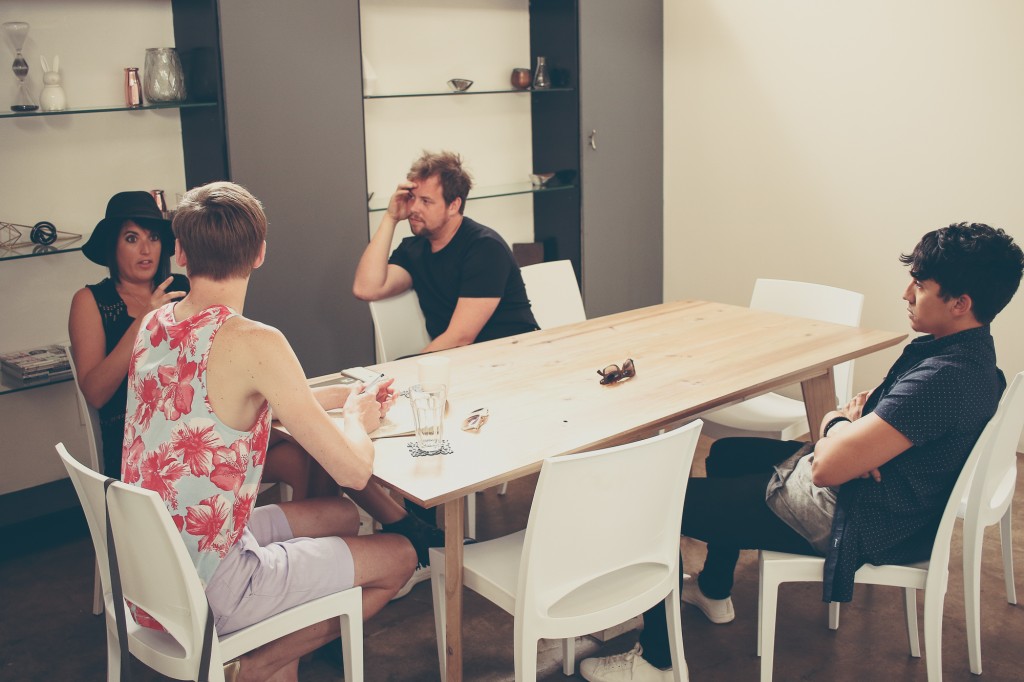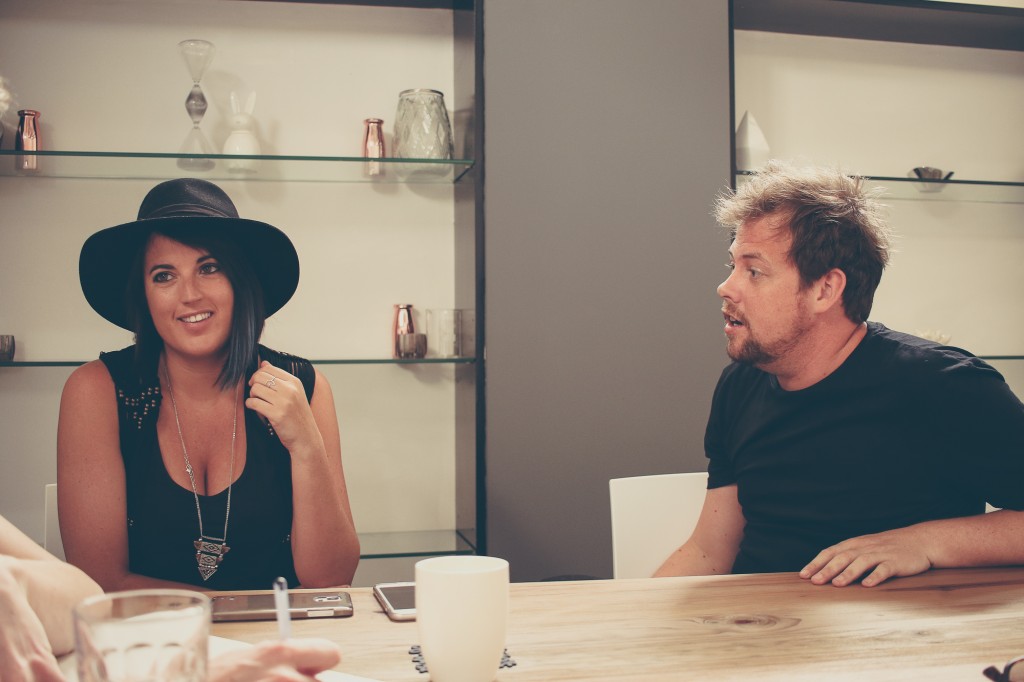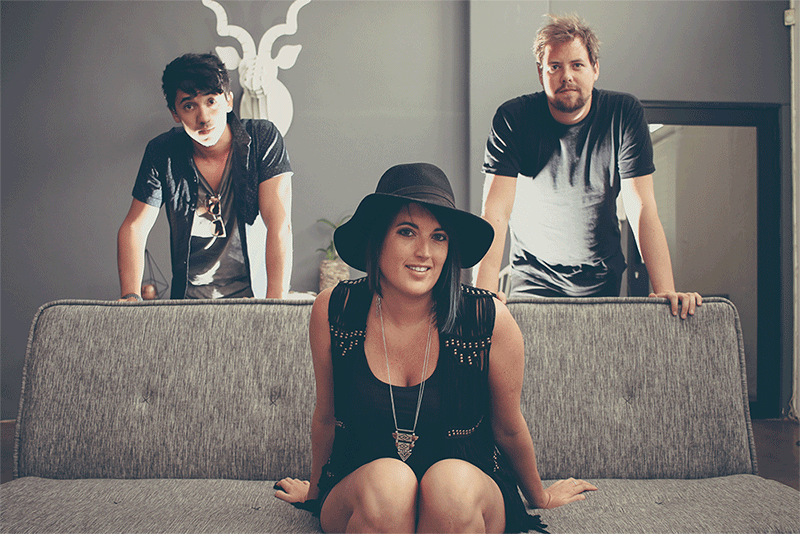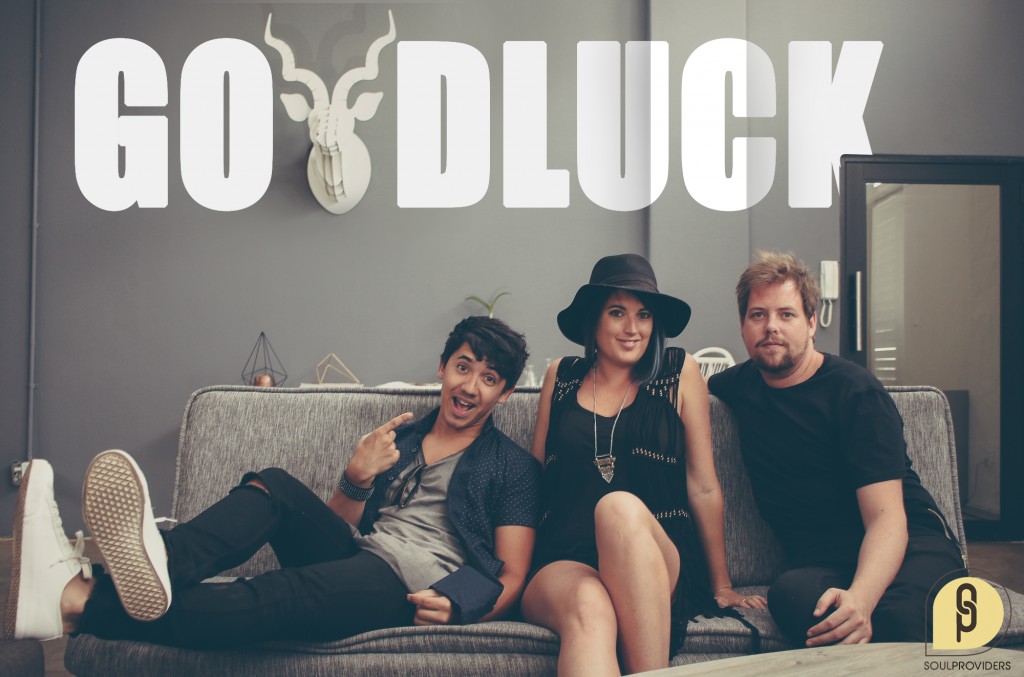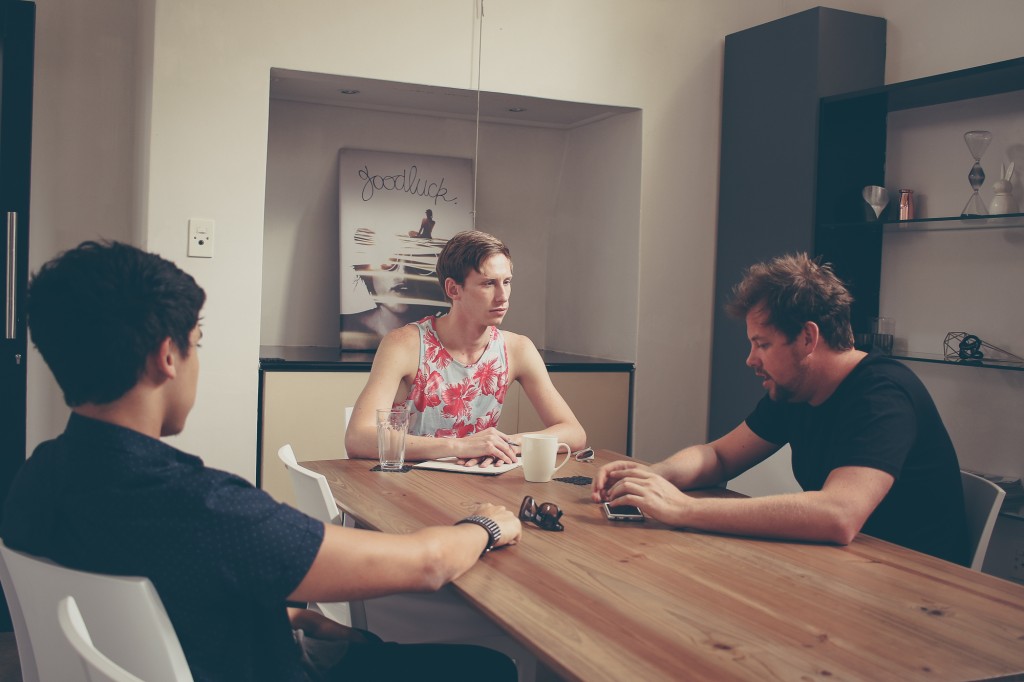By Ludwig Spies
South Africa’s coolest electronic band, Goodluck, is now sailing with Armada Music. They sat down with us for a chat about their music, their popularity and their anonymity…
Goodluck is possibly South Africa’s most ironic musical act. Although they have produced a record number of chart toppers and been touring Europe since their inception in 2011, the name Goodluck often elicits a blank expression. Play one of their songs, however, and people will sing along without difficulty. Hence, it is quite poignant that the collaboration that got them signed with Armada Music was with Dutch house DJ Jeroen Maas aka De Hofnar. Maas chose the epithet, Court Jester, to signify his entertainment philosophy: “You are the kings, I’m just here to entertain you”. Goodluck have followed a similar approach. Traditionally a no-noise, no-press type of band, their priorities are the music, the audience and having fun.
Signing to Armada is big though. The label is the love child of ARmin van Buuren, MAykel Piron and DAvid Lewis and has under its umbrella some of the biggest names in the electronic dance scene. Goodluck has always been comfortable with bringing in another voice or talent to create the perfect sound, and this has seen them work with some major players. Lisa Kekaula, vocalist for Basement Jaxx, is the fierce voice on Harlem (2011) and What Would We Be (2013); and Phoenix Kayode infused their track Electro Thing (2011) with his South-East London grooves. The result has been a truly international sound, further enhanced and refined by their continual exposure to the European music scene whilst on tour.
“Touring internationally as a South African band in this music scene is a complicated situation,” says Ben Peters, who does production and percussion. “I think South African artists still have something of an inferiority complex. I think we often look at ourselves and wonder whether we look as good as the rest of the world when we’re singing or playing or dancing. This is a valid question. Our industry is comparatively young, and we don’t have that production history or legacy. So we have always tried to reference ourselves against the international scene in our pursuit of attaining international standards.”
Their global sound has, again ironically, contributed to their ‘anonymity’. “Just a few months ago at a gig in Stellenbosch, this guy came up to us after the show, and he’s like, ‘You guys are really awesome, but you should consider doing some original stuff.’ And we thought, ok, we literally don’t have a single cover in our set… He just didn’t know that the songs he had heard on the radio weren’t those of a big, famous DJ; they’re ours,” laughs Juliet ‘Jules’ Harding, who’s on vocals.
Goodluck has long referred to themselves as “the nerds of the music industry”. They started out very much through trial and error, guided by what “sounded right” and absorbing what they experienced locally and abroad. They were initially known for their electro-swing tracks, but even then the full spectrum of their EDM abilities were evident.
“One of the craziest criticisms we’ve ever received”, says Ben, “was from our Dutch booking agent, who told us that some audiences suspected we were using backtracks during our shows because we sounded too good to be playing live.”
“After picking up our jaws from the floor, we decided that that’s ok,” says Jules. “We weren’t going to reduce the quality of our sound to convince anyone that we were for real. If you look at all the equipment we have on stage, you can actually see that everything is produced right there.”
Their work now is a blend of melodic electronica that incorporates elements from various African and African-influenced styles, yet the strong saxophone and percussion is often misconstrued as jazz. “It’s not really jazz,” says Matthew O’Connell, who plays the saxophone and keyboard. “It’s something earlier; it’s what came out of Africa and later became jazz in the US.” It’s these potentially exotic elements that distinguish Goodluck from their international counterparts and intrigue foreign audiences.
Ben, Jules and Matthew aren’t worried that signing with a big label will kill their unique sound. “We’re quite excited by the prospect of working with the other artists at Armada,” says Ben. “Part of our evolution has been to develop and consolidate our style and focusing on writing music that is perfect for Jules’s voice. So I think we’re quite safe.”
Jules’s song-writing process is fantastic. “They’re like little seeds,” she says almost nervously, “that spring up at any time, and they need water immediately. If an idea pops into my head I have to share it, pen it, record it immediately or it’s gone. They can come to me when I’m driving or standing at the kettle making Milo.” There is a strangely ethereal quality to their songs. Rather than plainly telling a story about this or that, they capture a deeper mood or state of mind. It’s abstract and metaphoric and can’t be pinned down hence they resonate richly with the listener’s associations and evoke a deeply emotional experience.
“And that’s what we want to do… create the soundtrack to people’s adventures,” says Ben, to which Jules adds, “We want to float around in the back of people’s minds and take them back to that place every time they hear our songs.”
You can connect with Goodluck on:
Web: Goodlucklive.com
Facebook: GOODLUCK
Twitter: GoodLuck Music @Goodlucklive
Instagram: @goodlucklive
Music available on iTunes

